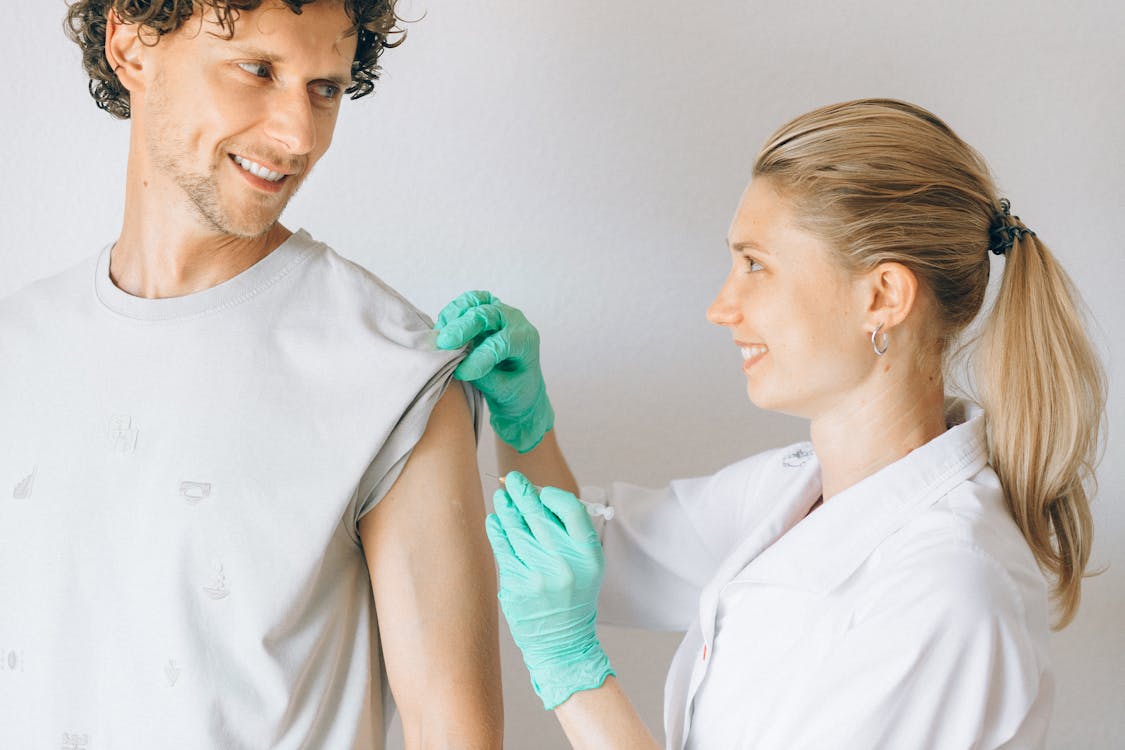As winter approaches and the cold weather closes in, cases of influenza (the flu) typically rise, putting people at greater risk of the disease. While some lucky people get away with milder symptoms, the flu is far more than a nasty cold. For certain people, the symptoms can be severe or even life-threatening.
However, the good news is that there is something you can do to protect yourself and others during the flu season: get the flu vaccine.
Table of Contents
How Does the Vaccine Work?
Time for a quick biology lesson!
The first thing your body does when it gets infected is to try to get rid of it before it becomes a problem. It can try and flush it out – which is why you get a runny nose if you get a cold or get sick if you have a stomach bug. You might get a temperature, too, making it more difficult for infections to survive.
The next thing that happens is your white blood cells spring into action. They track down the bug (known as an antigen) and engulf it, so it’s inside the white blood cell. They they release chemicals that destroy it.
The last thing your body does is to make a record of the thing that infected you. It does this by creating antibodies – proteins that fight the antigens by attaching themselves to molecules on the antigen the next time they encounter it, binding and neutralising it, and acting like a beacon, calling your white blood cells to destroy it.
The flu vaccine works by giving you a shot that contains an inactive piece of the virus, often just a specific protein from it. Because it’s inactive, the bit of the virus you’re given doesn’t replicate itself or make you ill. However, your body’s immune system still recognises it as a potential threat and reacts to it.
Now, your body creates antibodies for the virus, meaning the next time you encounter the virus, your body can neutralise it before it becomes a problem. Well done, scientists; well done, body – that’s a pretty fantastic trick.
Why is it Important to Get a Flu Jab?
There’s no cure for the flu. In some extreme cases, antivirals are given to help your immune system out, but most of the time, you’re on your own. The flu shot is the best thing you can do to protect yourself.
However, getting vaccinated against the flu isn’t just to protect yourself; it protects those around you, too. By reducing your chances of catching the disease, you reduce the chances of passing it on, slowing the spread of the virus so those who are most vulnerable can stay safe.
So Who Should Get Vaccinated?
Anyone can get the flu vaccine. However, some groups of people are expressly advised to have one to protect themselves or the people around them.
- Older Adults: Anyone aged 65 and over.
- People with Chronic Conditions: Individuals with long-term health conditions like heart disease, respiratory illnesses, diabetes, or weakened immune systems.
- Pregnant Women: Pregnancy alters how the body handles infections, so flu can be more severe.
- Residents of Care Homes: People living in communal settings are at higher risk of catching and spreading the flu.
- Carers and Healthcare Workers: Those who are the primary carers for an older or disabled person or frontline health and social care workers.
- Children Aged 2 to 17 Years: Most children will be given a flu vaccination nasal spray at school.
Effectiveness of the Vaccine
While it’s not 100% perfect, the flu vaccine dramatically reduces your chances of getting ill from the influenza virus. If you do catch the virus after you have been vaccinated, you will fight off the infection far better than you would without the vaccination.
However, like the cold virus, the flu virus is constantly changing. This means it’s important to get flu shots annually so you’ll be protected from new strains of the virus.
How to Get Vaccinated
Many people can get vaccinations for free from their GP. If you want to get a flu vaccination or talk to a doctor about the flu vaccine, it’s quick and easy to complete a GP registration online.
It is also possible to get flu jabs from many pharmacies. They are available to anyone, although be aware that there will be a small charge.

